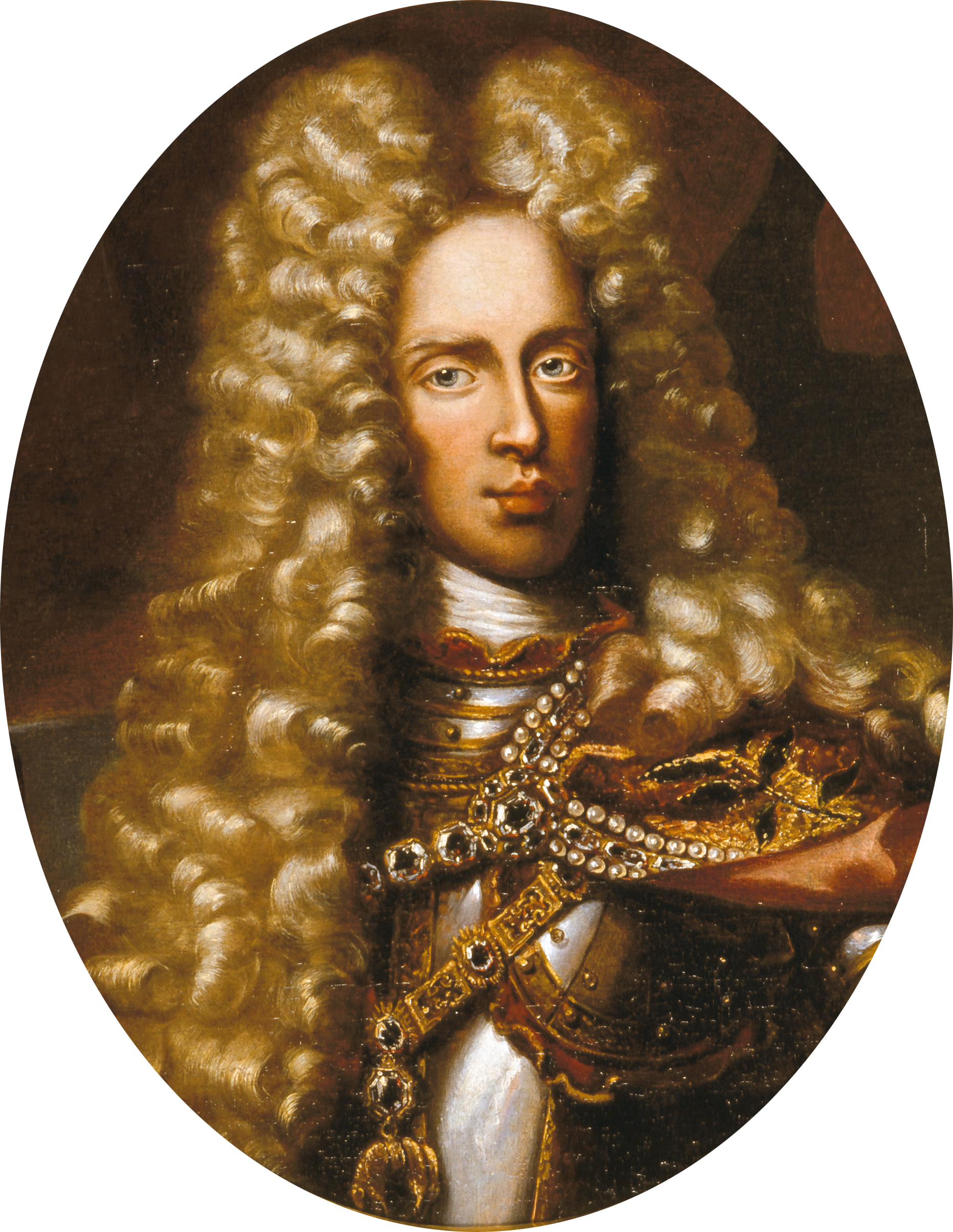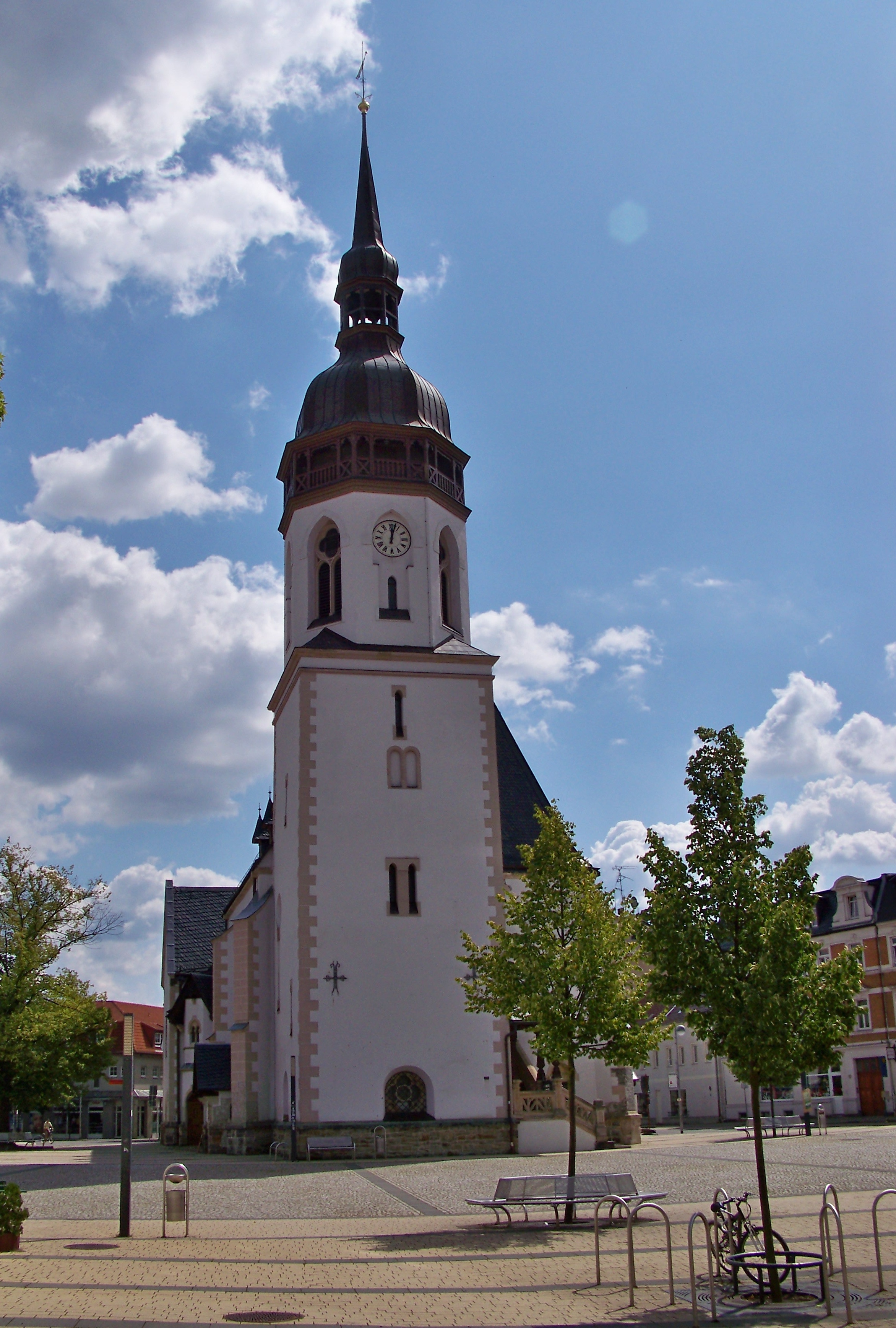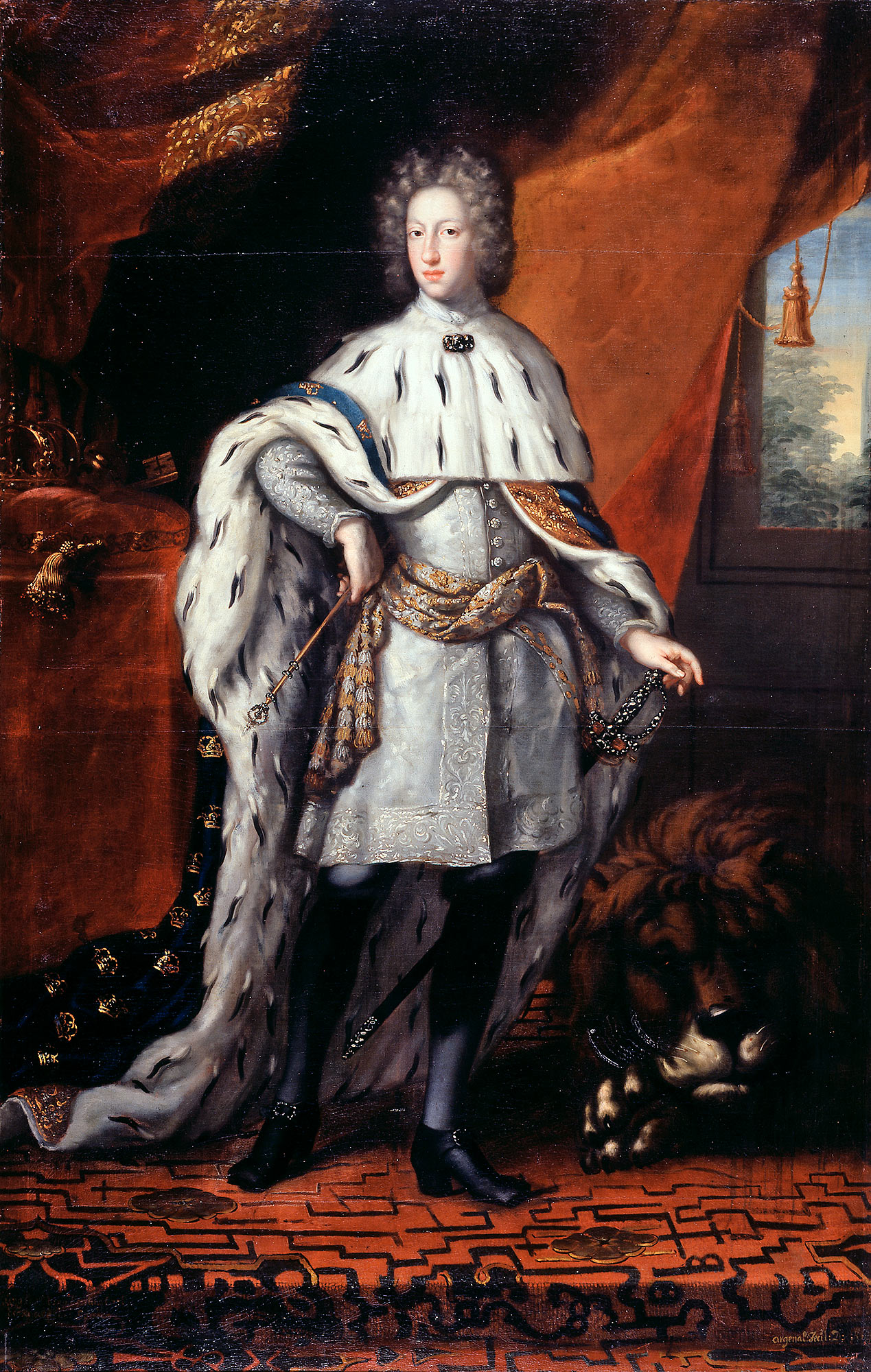|
Altranstädt
Altranstädt is a village and former municipality in Saxony, Germany, now part of the town Markranstädt in the district of Leipzig. The village is historically famous for two treaties that were concluded there, the Treaty of Altranstädt (1706) and the Treaty of Altranstädt (1707). The 1706 treaty was a peace which Augustus II, king of Poland and elector of Saxony, was forced to ratify on 24 September 1706, with Charles XII of Sweden. The former renounced the throne of Poland in favor of Stanislaus Leszczynski's treaty which Augustus declared null and void after Charles XII's defeat at Poltava (8 July 1709). The other treaty was signed on 31 August 1707. Emperor Joseph I guaranteed to Charles XII religious tolerance and liberty of conscience for the Silesian Protestants. Charles was visited in Altranstädt by John Churchill, 1st Duke of Marlborough General John Churchill, 1st Duke of Marlborough, 1st Prince of Mindelheim, 1st Count of Nellenburg, Prince of the Holy Ro ... [...More Info...] [...Related Items...] OR: [Wikipedia] [Google] [Baidu] |
Treaty Of Altranstädt (1707)
The Treaty or Convention of Altranstädt was signed between Charles XII of Sweden and Joseph I, Holy Roman Emperor on 31 August 1707. It settled the rights of Protestants in Silesia. Historical context While the Protestant Reformation had strongly affected Silesia, the Habsburg emperors had subjected the province to the Counter-Reformation in the 18th century.Büsch (1992), p. 575 In Upper Silesia, in particular, these measures were successful: in the early 18th century, almost half of the Silesian population was Roman Catholic and some 1,000 churches had been rededicated from Protestant to Roman Catholic. The Peace of Westphalia (1648) protected Protestants only in the duchies of Brieg, Liegnitz, Münsterberg, Öls, Wohlau and in the city of Breslau. In the duchies of Jauer, Glogau and Schweidnitz, the Protestants were allowed to maintain three "peace churches" (''Friedenskirchen'') outside the city walls. After 1675, only Breslau and the Duchy of Oels were spared fro ... [...More Info...] [...Related Items...] OR: [Wikipedia] [Google] [Baidu] |
Markranstädt
Markranstädt () is a town in the Leipzig district, in Saxony, Germany. It is situated 11 km southwest of the city of Leipzig and has close to 15,000 inhabitants. Geography Location Markranstädt is located about south-west of Leipzig city centre, between Saxony-Anhalt and the Leipzig housing estate , to the west of the ''Kulkwitzer See''. It is the only municipality in the ''Landkreis Leipzig'' that lies west of the city. Divisions Markranstädt is a municipality consisting of the town itself and the following six ''Ortschaften'' (localities), each containing several ''Ortsteile'' or divisions:Hauptsatzung der Stadt Markranstädt September 2016. *Frankenheim (incl. Lindennaundorf and Priesteblich) *Großlehna (incl. |
Altranstädt Schloss
Altranstädt is a village and former municipality in Saxony, Germany, now part of the town Markranstädt in the district of Leipzig. The village is historically famous for two treaties that were concluded there, the Treaty of Altranstädt (1706) and the Treaty of Altranstädt (1707). The 1706 treaty was a peace which Augustus II, king of Poland and elector of Saxony, was forced to ratify on 24 September 1706, with Charles XII of Sweden. The former renounced the throne of Poland in favor of Stanislaus Leszczynski's treaty which Augustus declared null and void after Charles XII's defeat at Poltava (8 July 1709). The other treaty was signed on 31 August 1707. Emperor Joseph I guaranteed to Charles XII religious tolerance and liberty of conscience for the Silesian Protestants. Charles was visited in Altranstädt by John Churchill, 1st Duke of Marlborough General John Churchill, 1st Duke of Marlborough, 1st Prince of Mindelheim, 1st Count of Nellenburg, Prince of the Holy Roman E ... [...More Info...] [...Related Items...] OR: [Wikipedia] [Google] [Baidu] |
Treaty Of Altranstädt (1706)
The Treaty of Altranstädt was concluded between Charles XII of Sweden and Augustus the Strong of Saxony and Poland–Lithuania, on 13 October 1706, during the Great Northern War. Augustus had to renounce his claims to the Polish throne and his alliance with Russia. Background On behalf of Charles XII, who had occupied much of the Polish–Lithuanian Commonwealth during the Great Northern War, Stanisław Leszczyński was crowned king of Poland on 4 October 1705.Bromley (1970), p. 699 A faction of the commonwealth, organized in the Sandomierz Confederation, remained loyal to Saxon elector Augustus the Strong, Polish king since 1697 and allied against Charles XII with Russian tsar Peter the Great.Anisimov (1993), pp. 103-104 The resulting civil war in Poland (1704-1706) did not go well for August. His attempt to regain control in Poland–Lithuania was thwarted by Charles XII in the Battle of Grodno and by Carl Gustav Rehnskiöld in the Battle of Fraustadt, both in the ... [...More Info...] [...Related Items...] OR: [Wikipedia] [Google] [Baidu] |
John Churchill, 1st Duke Of Marlborough
General John Churchill, 1st Duke of Marlborough, 1st Prince of Mindelheim, 1st Count of Nellenburg, Prince of the Holy Roman Empire, (26 May 1650 – 16 June 1722 O.S.) was an English soldier and statesman whose career spanned the reigns of five monarchs. From a gentry family, he served first as a page at the court of the House of Stuart under James, Duke of York, through the 1670s and early 1680s, earning military and political advancement through his courage and diplomatic skill. Churchill's role in defeating the Monmouth Rebellion in 1685 helped secure James on the throne, but he was a key player in the military conspiracy that led to James being deposed during the Glorious Revolution. Rewarded by William III with the title Earl of Marlborough, persistent charges of Jacobitism led to his fall from office and temporary imprisonment in the Tower of London. William recognised his abilities by appointing him as his deputy in Southern Netherlands (modern-day Belgium) be ... [...More Info...] [...Related Items...] OR: [Wikipedia] [Google] [Baidu] |
Augustus II
Augustus II; german: August der Starke; lt, Augustas II; in Saxony also known as Frederick Augustus I – Friedrich August I (12 May 16701 February 1733), most commonly known as Augustus the Strong, was Elector of Saxony from 1694 as well as King of Poland and Grand Duke of Lithuania in the years 1697–1706 and from 1709 until his death in 1733. He belonged to the Albertine line of the House of Wettin. Augustus' great physical strength earned him the nicknames "the Strong", "the Saxon Hercules" and "Iron-Hand". He liked to show that he lived up to his name by breaking horseshoes with his bare hands and engaging in fox tossing by holding the end of his sling with just one finger while two of the strongest men in his court held the other end.Sacheverell Sitwell. ''The Hunters and the Hunted'', p. 60. Macmillan, 1947. He is also notable for fathering a very large number of children. In order to be elected King of the Polish–Lithuanian Commonwealth, Augustus converted to Roman ... [...More Info...] [...Related Items...] OR: [Wikipedia] [Google] [Baidu] |
Poltava
Poltava (, ; uk, Полтава ) is a city located on the Vorskla River in central Ukraine. It is the capital city of the Poltava Oblast (province) and of the surrounding Poltava Raion (district) of the oblast. Poltava is administratively incorporated as a city of oblast significance and does not belong to the raion. It has a population of History It is still unknown when Poltava was founded, although the town was not attested before 1174. However, for reasons unknown, municipal authorities chose to celebrate the city's 1100th anniversary in 1999. The settlement is indeed an old one, as archeologists unearthed a Paleolithic dwelling as well as Scythian remains within the city limits. Middle Ages The present name of the city is traditionally connected to the settlement Ltava which is mentioned in the Hypatian Chronicle in 1174. [...More Info...] [...Related Items...] OR: [Wikipedia] [Google] [Baidu] |
Silesia
Silesia (, also , ) is a historical region of Central Europe that lies mostly within Poland, with small parts in the Czech Republic and Germany. Its area is approximately , and the population is estimated at around 8,000,000. Silesia is split into two main subregions, Lower Silesia in the west and Upper Silesia in the east. Silesia has a diverse culture, including architecture, costumes, cuisine, traditions, and the Silesian language (minority in Upper Silesia). Silesia is along the Oder River, with the Sudeten Mountains extending across the southern border. The region contains many historical landmarks and UNESCO World Heritage Sites. It is also rich in mineral and natural resources, and includes several important industrial areas. The largest city and Lower Silesia's capital is Wrocław; the historic capital of Upper Silesia is Opole. The biggest metropolitan area is the Upper Silesian metropolitan area, the centre of which is Katowice. Parts of the Czech city of Ostrav ... [...More Info...] [...Related Items...] OR: [Wikipedia] [Google] [Baidu] |
Charles XII
Charles XII, sometimes Carl XII ( sv, Karl XII) or Carolus Rex (17 June 1682 – 30 November 1718 O.S.), was King of Sweden (including current Finland) from 1697 to 1718. He belonged to the House of Palatinate-Zweibrücken, a branch line of the House of Wittelsbach. Charles was the only surviving son of Charles XI and Ulrika Eleonora the Elder. He assumed power, after a seven-month caretaker government, at the age of fifteen. In 1700, a triple alliance of Denmark–Norway, Saxony– Poland–Lithuania and Russia launched a threefold attack on the Swedish protectorate of Holstein-Gottorp and provinces of Livonia and Ingria, aiming to draw advantage as the Swedish Empire was unaligned and ruled by a young and inexperienced king, thus initiating the Great Northern War. Leading the Swedish army against the alliance, Charles won multiple victories despite being usually significantly outnumbered. A major victory over a Russian army some three times the size in 1700, at the Ba ... [...More Info...] [...Related Items...] OR: [Wikipedia] [Google] [Baidu] |
Joseph I, Holy Roman Emperor
, father = Leopold I, Holy Roman Emperor , mother = Eleonore Magdalene of Neuburg , birth_date = , birth_place = Vienna, Austria , death_date = , death_place = Vienna, Austria , burial_place = Imperial Crypt, Vienna , religion = Roman Catholicism Joseph I (Joseph Jacob Ignaz Johann Anton Eustachius; 26 July 1678 – 17 April 1711) was Holy Roman Emperor and ruler of the Austrian Habsburg monarchy from 1705 until his death in 1711. He was the eldest son of Emperor Leopold I from his third wife, Eleonor Magdalene of Neuburg. Joseph was crowned King of Hungary at the age of nine in 1687 and was elected King of the Romans at the age of eleven in 1690. He succeeded to the thrones of Bohemia and the Holy Roman Empire when his father died. Joseph continued the War of the Spanish Succession, begun by his father against Louis XIV of France, in an attempt to make his younger brother Charles (later Emperor Charles VI) King of Spain. In the process, however, o ... [...More Info...] [...Related Items...] OR: [Wikipedia] [Google] [Baidu] |
Poland
Poland, officially the Republic of Poland, is a country in Central Europe. It is divided into 16 administrative provinces called voivodeships, covering an area of . Poland has a population of over 38 million and is the fifth-most populous member state of the European Union. Warsaw is the nation's capital and largest metropolis. Other major cities include Kraków, Wrocław, Łódź, Poznań, Gdańsk, and Szczecin. Poland has a temperate transitional climate and its territory traverses the Central European Plain, extending from Baltic Sea in the north to Sudeten and Carpathian Mountains in the south. The longest Polish river is the Vistula, and Poland's highest point is Mount Rysy, situated in the Tatra mountain range of the Carpathians. The country is bordered by Lithuania and Russia to the northeast, Belarus and Ukraine to the east, Slovakia and the Czech Republic to the south, and Germany to the west. It also shares maritime boundaries with Denmark and Sweden. ... [...More Info...] [...Related Items...] OR: [Wikipedia] [Google] [Baidu] |
Stanislaus Leszczynski
Stanislav and variants may refer to: People *Stanislav (given name), a Slavic given name with many spelling variations (Stanislaus, Stanislas, Stanisław, etc.) Places * Stanislav, a coastal village in Kherson, Ukraine * Stanislaus County, California * Stanislaus River, California * Stanislaus National Forest, California * Place Stanislas, a square in Nancy, France, World Heritage Site of UNESCO * Saint-Stanislas, Mauricie, Quebec, a Canadian municipality * Stanizlav, a fictional train depot in the game '' TimeSplitters: Future Perfect'' * Stanislau, German name of Ivano-Frankivsk, Ukraine Schools * St. Stanislaus High School, an institution in Bandra, Mumbai, India * St. Stanislaus High School (Detroit) * Collège Stanislas de Paris, an institution in Paris, France * California State University, Stanislaus, a public university in Turlock, CA * St Stanislaus College (Bathurst), a secondary school in Bathurst, Australia * St. Stanislaus College (Guyana), a secondary school in ... [...More Info...] [...Related Items...] OR: [Wikipedia] [Google] [Baidu] |




.jpg)

